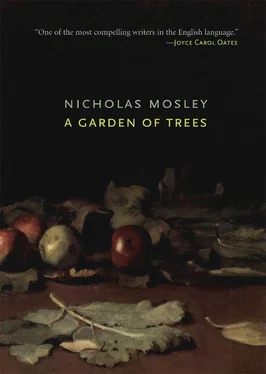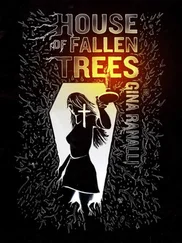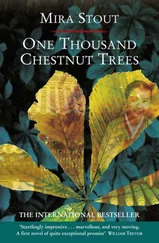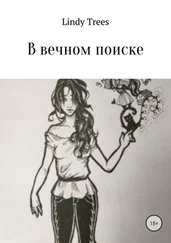This is the age of the man without passions, the man without poetry, the man without a past. Tradition is poetry, the myth is poetry, and now the myth and traditions are dead. The powers of the subconscious that have pulled the strings of the world for thousands of years, the power of passions, they now do not apply. Oedipus is irrelevant: Hamlet is irrelevant. In the age of psychoanalysis for the first time psychoanalysis is nonsense. It explains the past but it has nothing to do with the present. The end of the world is the end of the dark powers of humanity. The past is meaningless. Now for the first time man is faced with eternity and with nothing else.
The tears of the lyricists are dry; the shouts of the propagandists are empty. The words of progress, words with capital letters, have become more ridiculous than any because their sense is quite consciously nonsense. The world of the politicians has effaced itself even beyond ridicule, it has joked itself towards horror like the clown that becomes obscene in despair of failure. A Capital Letter may be put anywhere, may stand for anything. Freedom can mean Slavery, Peace stands for War, Democracy is inseparable from Intolerance. There is no laughter left for this absurdity. Big words are dirty, the car is running downhill, the smallness of the situation is in each man’s chance of survival. And his chance, as Peter had said, depends for nothing upon time or events or circumstances, but merely upon his ability to jump.
Passive, lonely, it is only a Sphinx because it is blind that can smile at a desert. The Sphinx does not dream because it knows. But for others there are still eyes for the sun to weary, mouths to breathe dust, ears to ache in the wind. Impotent among the sunsets a man receives the impressions that his machinery gives him — snapshots along the pavement, sound-effects at night, the touch of dull sensations like a pattern stamped on wax. Instead of ecstasy there is a perspective of rottenness: Columbine is a harlot with grease-paint in the rain, Harlequin holds a lily and grins and strokes its stem. They are the same people: it is the viewpoint that has changed. A machine can only record what is inanimate and deathly. And if at the centre there is still a spark of life, a spark of humanity, it is only in fantasy that this flame creates. The light that the fire engenders is sometimes fond and sometimes pathetic and sometimes filthy, but always it is pointless and often touched with shame.
In the city the machinery that possessed me received its impressions and mixed its dreams and I observed my fire dying with a vague despair. The shadows it cast were the company I lived with, shapes in the gutter like the temptation of trees. When I went to eat there would be a girl at the counter before me, a girl with long hair and a fox-face and a memory of apples. I watched her. In the crowds at night there would be many; fairy feet beneath the palms of candelabra, tails that brushed against the undergrowth of knees, a hunt of hounds in the woods of degradation. If I spoke my breath would destroy the dying candle, shadows were better than the darkness of night. I did not speak. Music appeared to comfort the silence, and in the circling of leaves the wind was dispelled. Serpents jerked upon the dance floor, branches of arms were supported in smoke, the dark garden wept. Then one evening in a weary promenade I saw the bald men who were the same as I and I was one of them. Our noses were pressed against desire like prisoners. That is what I could not bear, being one of them. A hound with its tongue out, silent because it was strangled. After that I did not go out any more.
Often I dreamed about Annabelle.
Living in one room, in a cage, like a monkey, the faces outside that I cannot bear to see, that must not see me, there are no minutes to the days and it is the nights that are terrible. Love is a cage in which a monkey crouches and there is nothing human in the vision outwards nor in the vision inwards, there is nothing but waiting for what will never arrive. Love is this in which I had never believed, of which I had acted in defiance — a condition of failure and the absence of life. When love is returned it is not love, it is living, and when love is real it is the desire to die. This love is worship and you do not get what you worship, if you get what you worship your life will cease. There were times when I thought that if I had possessed Annabelle, had held her even, if I had come so close as to touch her then something so dreadful would have happened that I could not have borne it. In all our days together I did not remember having touched her except once when we had danced. In dancing touching is unreal, it is not hearts that you touch. If our hearts had touched we should have died.
A room at night with life nowhere near to me. Around me the objects that are close are waiting in the shapes of people that should use them, chairs that are never sat in, beds that are never lain in, wood and stuffing that will always remain. If I sit I do not sit because for hour after hour it is not I who forget myself, chairs and tables are more real than my mind. If I should recreate Annabelle in words I do not know what I should say except that I tried to love her without desire and without covetousness and without jealousy and that now I find I am without myself. I should say that it would have been possible if she had stayed close to me, but sacrifices are useless if the idol is away. There is nothing that I want. If she came into my room I do not suppose that it would please me, I have no eyes that would see her nor any heart to touch. There is a corner of the ceiling that might speak to me. That is more real to me, containing more hope.
And then before death the flame that is dying cries for a minute and I say I will do something I will do anything I will make the last use of this will that is left to me, I will go out into the street and I will walk until I have done something and then it will be done. I will choose to do this and there is nothing easier to do and if I don’t I shall go mad. I get up from the chair in which I have become as dust and I walk to the door through the tomb of centuries and on the stairs I have to become savage so that the violation will be done. I step down pitifully knowing that this is pitiful, treading as if in fury past the objects that deride me and on the threshold of the sun I must stop to decide. I stop on the pavement with the street on either side of me, a direction stretching to the right and to the left and a road to cross with railings in front of me. I can go this way or that and it is I who must choose and then I know that I am mad. I cannot choose. There is nothing I desire.
There is a donkey, theoretically, who starves to death when he is placed between two bundles of hay which are equidistant from him. He has no means of deciding which way to turn. Now there was no hay, no hay in the world, and the effect was the same. The donkey could not move, I could not move, and I was the donkey.
There was nothing I desired. I stood on the edge of the street in which there was nothing, between the ends of perspective at which nothing belonged, and it was no use thinking, This or that will lead me to intention, and no use turning my head in hope. I knew I was the donkey. As a lunatic I waited while the emptiness of the world drained me and drop by drop I was emptied too. Now I am mad, I thought; I am finally in Hell. I stood in the sunlight while no one looked at me and nothing was part of me and I did not belong. It is no use trying, I thought. It is no use waiting even for the police to come and arrest me and to lead me away. There is not really enough of me for that.
14
It was another year before I saw them again. They wrote to me, once or twice, without saying much. Peter was working in an office, Annabelle was with her mother, Marius was not mentioned. In their letters there was a suggestion that they were as listless as I. Yet I did not believe this, I could not imagine them failing. Then at Christmas I had a postcard saying that they might soon be returning to England. For a while I revived, my dreams became a possibility. But they did not come. Time went slowly again; the winter dragged. At times I wondered what the year would have done to them, if it would have changed them so that when they returned we would still be apart. It seemed that this was what we had intended — that we should all change, perhaps — and it would surely only be I who had gone backwards into futility. When I thought this I was frightened that their return might be worse than their absence. Yet I hoped for them, always, as my only means of awakening from nightmare. And when they did return it was not as I had feared. Things had changed, but from the outside, not from within. Perhaps it was just that we were all a year older. One makes certain contacts with oldness in a year, even if what is contacted still tries to remain the same.
Читать дальше












